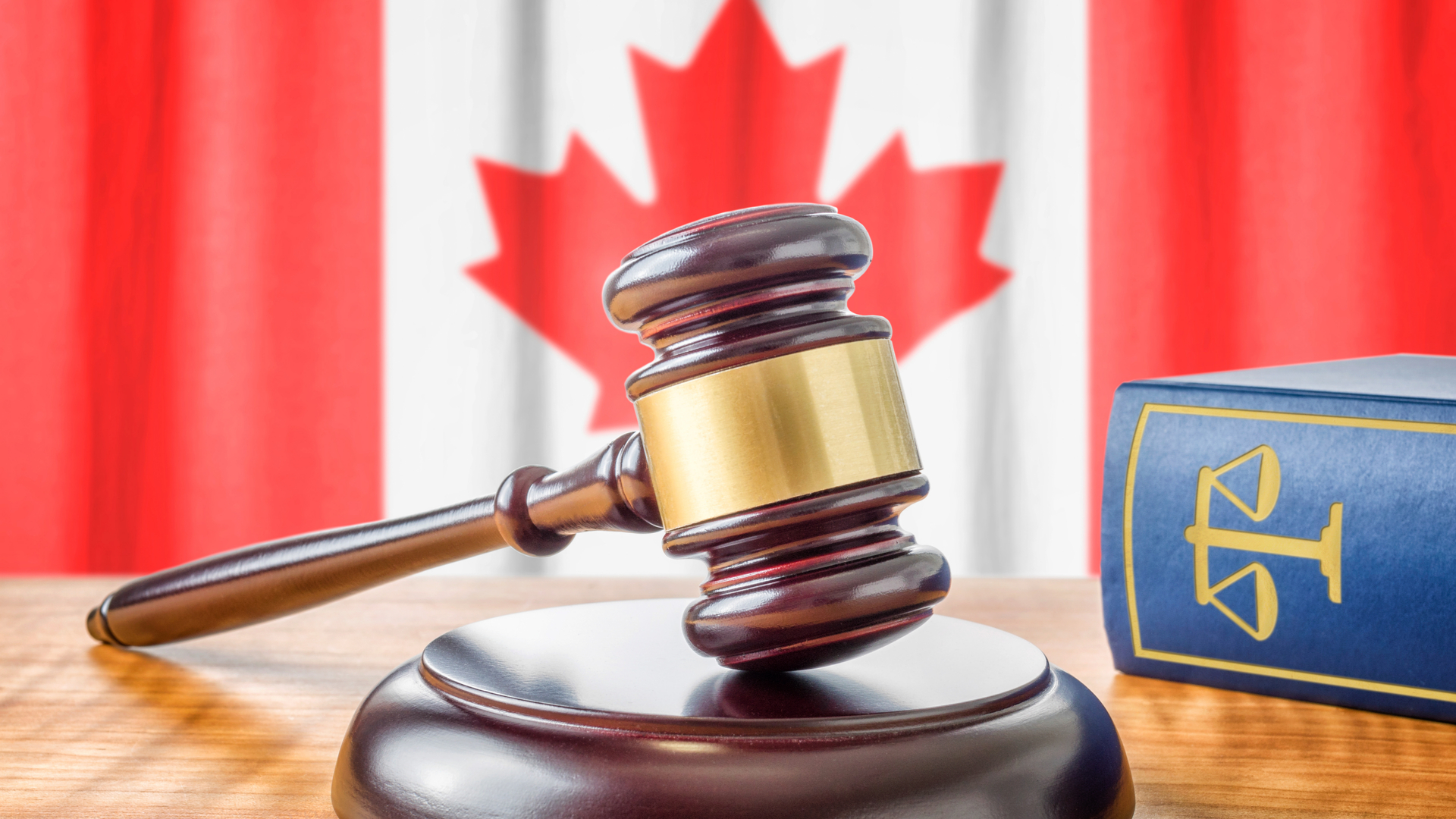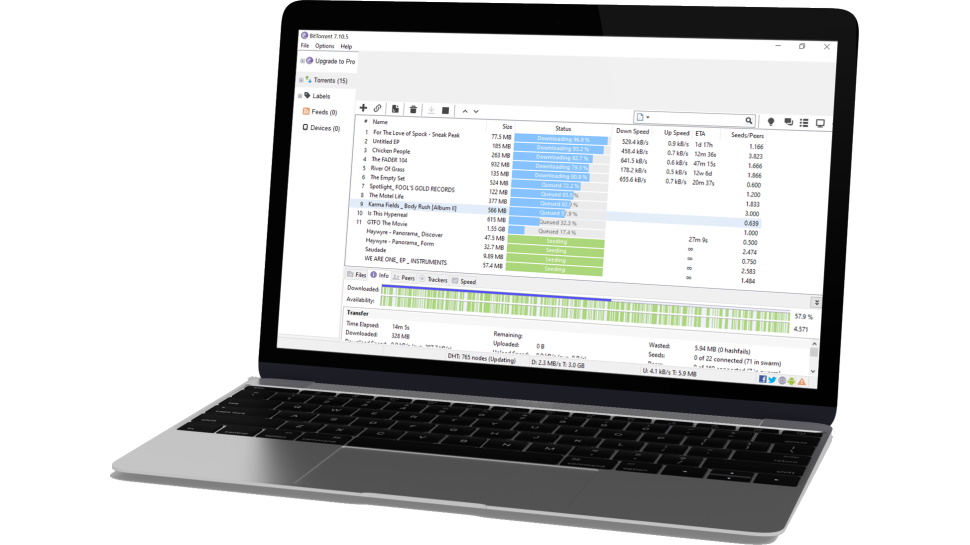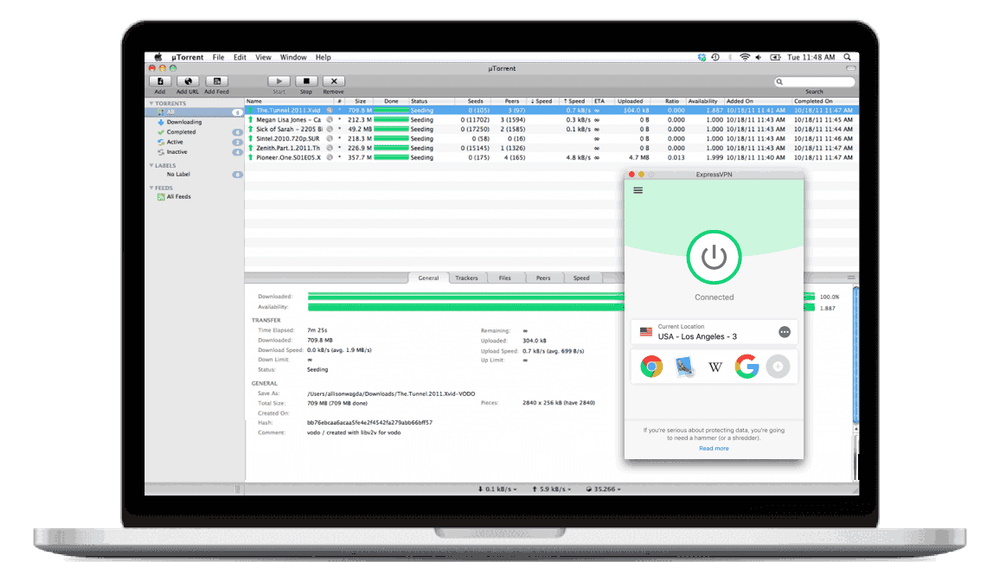Torrenters beware, Canada is tightening its grip on piracy - what you need to know
What does the future for torrenting in the country look like?

Sign up for breaking news, reviews, opinion, top tech deals, and more.
You are now subscribed
Your newsletter sign-up was successful
Over the last few years, Canada has certainly shown its commitment in the battle against online piracy.
The Canadian Federal Court ruled on the first copyright based web-blocking order for internet service providers (ISPs) in 2019, many civil lawsuits have been filed against individuals suspected of copyright infringements, and successive governments have tabled far-reaching anti-piracy bills.
Under this climate and with the law far from clear about piracy matters, many internet users have turn to Canada VPN services to evade more invasive tracking and torrenting blocks.
As Canada continues to tighten its grip against piracy directly from the benches, we look at what's in store for the future of peer-to-peer file sharing within the country.
Copyright based web-blocking in Canada
2019 saw the first time that a Canadian Federal Court issued a copyright based web-blocking order.
Web-blocking is becoming a common anti-piracy weapon in the hands of the film and music industry. In this specific case, cable TV providers were those who used court powers to uphold copyright.
As ISPs work as the middle man between internet users and the sites they want to access, such an order requires all Canada's internet service providers to block their subscribers from accessing websites hosting unlawful content.
Canadian ISP TekSavvy tried to challenge this ruling, appealing to the country’s Supreme Court using the argument that the decision could raise questions regarding free speech and net neutrality. It failed to convince the court however, and in March 2022, the Canada Supreme Court declined TekSavvy's appeal to overturn the ruling, forcing the ISP to comply with the web-blocking order.
In an official statement following the judgement, the law team representing the plaintiffs wrote: “This decision confirms once and for all that site-blocking orders are available in Canada, and is another major victory for Canadian copyright holders in the fight against online piracy”.

What does this mean for torrenting sites?
According to some commentators, this event sets a precedent for dealing with piracy matters while opening new possibilities for regulating risky online activities like torrenting.
For example, business law firm Aird & Berlis LLP wrote: " Imagine if this order could be coupled with real-time detection of piracy, e.g. BitTorrent distribution of films. If an ISP were ordered to block BitTorrent traffic detected by a reliable source, in real-time, online piracy would grind to a halt."
A site-blocking order might be implemented against torrent platforms to prevent Canadians from accessing their services, for example. Or, in a different scenario, a court may ask ISPs to block the access to the ports that these sites use for the distribution of their materials.
Whether or not these tactics will be enacted is yet to be seen. What's clear is that Canadian courts seem committed to take innovative and tangible actions against copyright infringements.

Is torrenting illegal in Canada?
Probably the fastest and easiest way to share files online, torrenting is not per se illegal in Canada. However, as in many other countries, this activity opens a gray area for users as downloading copyrighted material is actually against the Canadian law.
Canada's Copyright Modernization Act does require ISPs to notify its users in case an illegal download gets detected from their IP address. Although, no jail time can be issued against pirates.
That's why more and more copyright owners have been filing civil lawsuits against individuals found responsible for piracy over the last few years. As TorrentFreak reported, thousands of alleged pirates have been brought to court. In some instances, they are facing hefty settlement demands.
According to the Canadian copyright law, damage fines can go up to $5,000 for non-commercial use and up to $20,000 for those who download illicit material for profit.
Can using a VPN help?
As we can see, P2P sharing and torrenting can be a quite risky matter. That's mainly because it can often be difficult to determine the nature of a file before pressing the download button.
Take BitTorrent, for example. The network works as a file transfer protocol to break the shared file (the torrent) into little pieces for the system to read it. So it's common that users might download a copyrighted file simply by mistake.
This is the main reason why many people use a VPN - to be able to torrent safely and anonymously while securing their sensitive data.

On top of that, a VPN will prevent your ISP from tracking what you do online. Bear in mind that Canadian internet service providers are required by law to monitor your activities to check you are not infringing any copyright regulations.
When you connect to a virtual private network, this will hide your real IP address and geographic location, preventing your ISP from spying on you. Plus, it uses encryption protocols to anonymize your data via an encrypted tunnel.
It is worth noting that while TechRadar certainly doesn't condone any illicit activities you may carry on torrenting sites, we're also eager that you enjoy a legal use of torrents in the safest way possible. We recommend to check our guide on the best torrenting VPN services before making up your mind.

Sign up to the TechRadar Pro newsletter to get all the top news, opinion, features and guidance your business needs to succeed!

Chiara is a multimedia journalist committed to covering stories to help promote the rights and denounce the abuses of the digital side of life – wherever cybersecurity, markets, and politics tangle up. She believes an open, uncensored, and private internet is a basic human need and wants to use her knowledge of VPNs to help readers take back control. She writes news, interviews, and analysis on data privacy, online censorship, digital rights, tech policies, and security software, with a special focus on VPNs, for TechRadar and TechRadar Pro. Got a story, tip-off, or something tech-interesting to say? Reach out to chiara.castro@futurenet.com